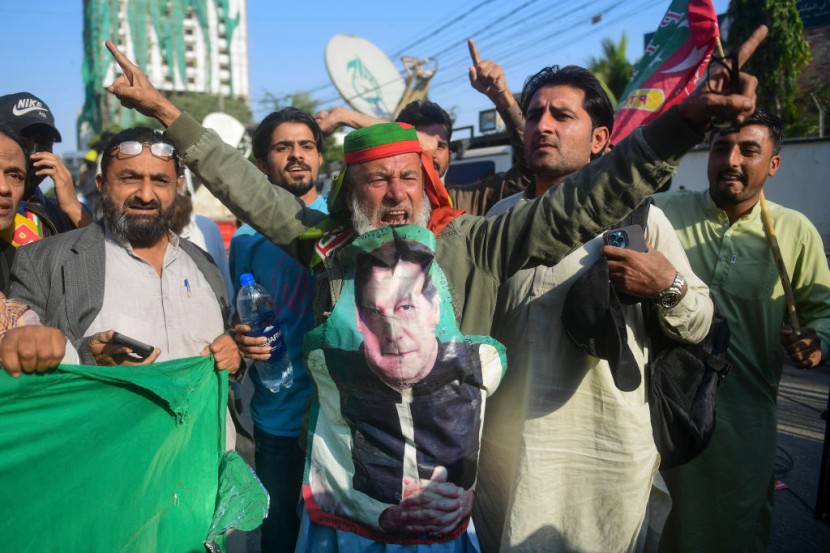Thousands of supporters of several Pakistani political parties, including imprisoned former Prime Minister Imran Khan's Pakistan Tehreek-e-Insaf Party (PTI), blocked key highways and started a daylong protest in the country's Baluchistan region on Monday (Feb. 12).
According to media reports, the protests were against the alleged rigging of last week's general elections, as well as an unprecedented mobile phone shutdown and the exclusion of Khan and the PTI from the vote.
While election winners like the Pakistan Muslim League-N (PML-N) and the Pakistan People's Party (PPP) were celebrating their victories - claiming 75 and 54 seats in the 266-seat National Assembly, respectively - PTI and other parties refused to accept their defeat in several constituencies.
Dozens of Khan's supporters were briefly detained in the eastern city of Lahore over the weekend during the protests.
Baluchistan provincial government spokesman Jan Achakzai urged protesters to "show grace" by accepting defeat and dispersing from the roads.
Read Also : Nawaz Sharif Sees Victory in Pakistan

Khan's Influence Beyond Prison Bars
While he could not be eligible to run for the electron due to criminal convictions against him that he said were politically motivated, candidates backed by Khan won 101 seats, more than the political parties who ousted him from power in 2022, such as the PML-N and the PPP, according to the final tally published on Sunday (Feb. 11).
However, Khan's allies did not win a majority, so parties would have to hold talks on forming a coalition government and name the next prime minister.
Meanwhile, the Pakistani military always cast itself as the ultimate arbiter of who would become prime minister and three-time premier Nawaz Sharif was marked out as the powerful security establishment's preferred candidate because of his smooth return to the country last October.
Sharif spent four years in exile to avoid serving prison sentences but his convictions were overturned within weeks of his arrival in Pakistan.








